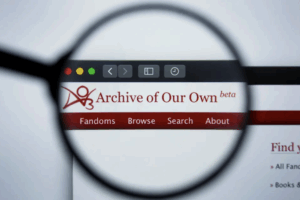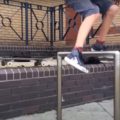
All around the world, forms of art—including writing—can be both dark and deeply artistic. As the internet becomes more infatuated with underground writers and their unpublished work on AO3 (“Archive of Our Own,” a public archive where users can post fictional stories about games, shows, or cartoon series), people have become increasingly alarmed by the content being shared on this platform. Some of these problematic tags include dark content such as Dead Dove: Do Not Eat, Dacryphilia, and Child Abuse. In this article, I will discuss both the platform’s stance on its published works, the arguments against these unpublished fanfictions, and the counterarguments.
AO3 (Archive of Our Own) is a public website that anyone—regardless of age—can access. A basic introduction to AO3 can be summarized as follows: it is a non-profit organization that provides a space for fans of various genres to publish their writing in a non-judgmental environment. However, this doesn’t mean that AO3 presents itself as child-friendly or promotes “safe-to-read” short stories. There isn’t much direct interaction between users, but the website is user-friendly and allows most people to navigate it easily. One of the ways it achieves this is through its “Sort and Filter” option, which lets readers select the tags they want to include or avoid. This feature helps users access content quickly and efficiently.
The “Sort and Filter” tool is just one of many impressive features. For the writers themselves, AO3 allows users to add any tags to accurately describe their work and attract their intended audience. They can even post anonymously if they don’t want their name or profile attached to their writing. A bonus for both writers and readers is that works can be posted in any language, and the site offers translation options to help users around the globe. This makes AO3 a platform that connects artists and readers beyond physical and linguistic borders.
While many people agree that AO3 is a good website for readers and writers around the world, it has also faced a fair share of criticism. The main argument is that the website allows the publication of graphic adult content, sometimes involving themes related to minors. Although the website itself has never promoted or shown favoritism toward such works, critics still express concern over the potential harm these “fantasies” may cause. Recently, one Reddit user summarized AO3’s stance on controversial tags as allowing “sexual content of minors,” claiming that the site is “full of pedophiles and supports pedophilia.” Some argue that censoring such stories would make the website safer and more inclusive. The non-profit organization has received significant backlash because of these accusations and has addressed them multiple times. Regardless of their efforts, critics believe there is no way to resolve these concerns without implementing censorship.
While these concerns may help protect individuals who are easily triggered by sensitive content, they also risk restricting freedom of speech and artistic expression. Adding censorship, especially when the organization already enforces policies regarding Prohibited Content (real-world harm), Child Sexual Abuse Material (CSAM), Transparency and Communication, and Slavery, could harm writers’ ability to create freely without professional credentials or formal training. One anonymous Reddit user in the thread “Are_There_People_Really_
Some also argue that critics of AO3 often frame their arguments around morality. However, morality is subjective, and one individual’s concept of morality should not dictate what others can create or consume. As one Redditor famously stated, “That’s why tagging and warnings exist—so you can filter out the stuff that doesn’t adhere to your own moral guidelines while still preserving the archive’s anti-censorship mission.” This aligns with AO3’s design, which emphasizes user choice through its Include, Exclude, and More Options filter system.
Regardless of recent backlash, the Archive remains intact and free to the public. Personally, I don’t believe that censoring art will help victims of sexual abuse or PTSD. It also doesn’t help writers who may be victims themselves and choose to share their experiences through fiction. While some may view the platform as controversial, AO3 has implemented many safety precautions and clear guidelines to prevent criminal activity and maintain a safe space for creative expression.







